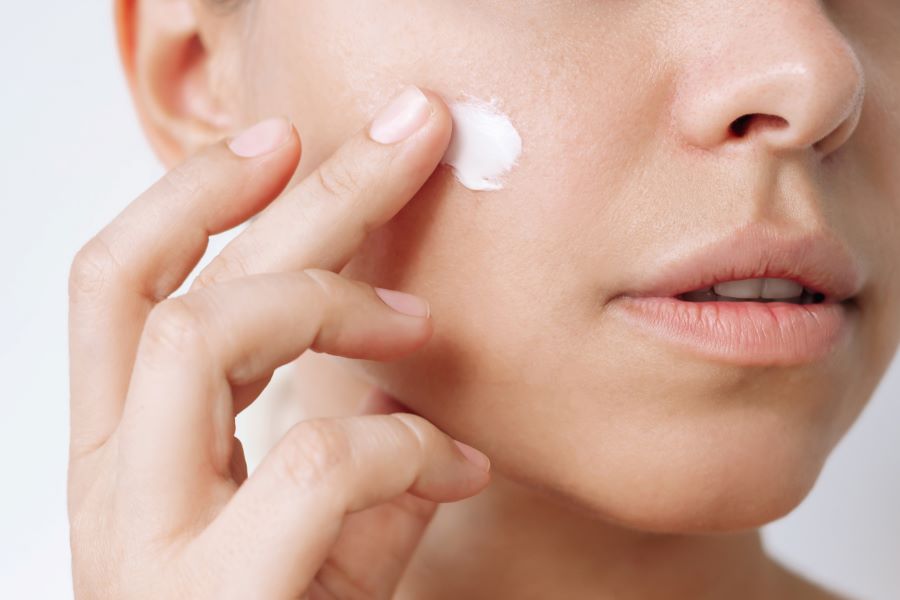The Power of Serums in Modern Skincare Routines
Serums have become a cornerstone of modern skincare routines, revolutionizing the way we approach beauty and self-care. These potent, lightweight formulations have gained immense popularity in recent years, promising targeted solutions for a wide range of skin concerns. From brightening and hydrating to anti-aging and acne-fighting properties, serums offer a concentrated dose of active ingredients that can penetrate deeper into the skin than traditional moisturizers. As consumers become more educated about skincare ingredients and their benefits, the demand for effective, science-backed products has surged, with serums leading the charge in this new era of skincare sophistication.

Understanding the Science Behind Serums
What sets serums apart from other skincare products is their unique formulation. Serums typically contain a higher concentration of active ingredients compared to moisturizers or creams. These active ingredients are often made up of smaller molecules, allowing them to penetrate deeper into the skin’s layers. This enhanced penetration means that serums can deliver targeted ingredients more effectively, potentially leading to more noticeable results.
Common active ingredients found in serums include:
-
Hyaluronic acid for hydration
-
Vitamin C for brightening and antioxidant protection
-
Retinol for anti-aging and skin cell turnover
-
Niacinamide for pore refinement and oil control
-
Peptides for collagen production and skin firmness
The Versatility of Serums in Addressing Skin Concerns
One of the key advantages of serums is their ability to target specific skin issues. This versatility has led to the development of a wide range of specialized serums, each designed to address particular concerns:
-
Hydrating serums: These focus on delivering intense moisture to the skin, often using ingredients like hyaluronic acid or glycerin.
-
Brightening serums: Formulated with ingredients like vitamin C, kojic acid, or alpha-arbutin, these serums aim to even out skin tone and reduce hyperpigmentation.
-
Anti-aging serums: These often contain retinoids, peptides, or growth factors to help reduce the appearance of fine lines and wrinkles.
-
Acne-fighting serums: Ingredients like salicylic acid, niacinamide, or tea tree oil are common in serums designed to combat acne and control excess oil production.
-
Calming serums: For sensitive or irritated skin, serums with ingredients like centella asiatica, aloe vera, or chamomile can help soothe and reduce inflammation.
Integrating Serums into a Skincare Routine
While serums offer powerful benefits, knowing how to incorporate them into an existing skincare routine is crucial for maximizing their effectiveness. Generally, serums should be applied after cleansing and toning but before moisturizing. This allows the active ingredients to be absorbed into the skin without barriers.
For those new to using serums, it’s recommended to start with one serum and gradually introduce others as needed. Layering multiple serums is possible, but it’s important to consider potential interactions between ingredients and to allow each layer to absorb before applying the next.
The Global Serum Market and Consumer Trends
The global facial serum market has experienced significant growth in recent years, with projections suggesting continued expansion. This growth is driven by several factors, including:
-
Increasing awareness of skincare among younger consumers
-
Growing demand for natural and organic skincare products
-
Rising disposable incomes in emerging markets
-
Advancements in e-commerce, making niche and luxury skincare more accessible
Consumer trends indicate a preference for multi-functional serums that offer multiple benefits in a single product. There’s also a growing interest in clean beauty and sustainable packaging, influencing how brands formulate and package their serum products.
Challenges and Considerations in Serum Usage
While serums offer numerous benefits, they also come with certain challenges and considerations:
-
Cost: High-quality serums can be expensive due to their concentrated formulations and potent ingredients.
-
Sensitivity: The high concentration of active ingredients may cause irritation in some individuals, particularly those with sensitive skin.
-
Overuse: There’s a risk of overloading the skin with too many active ingredients, potentially leading to irritation or reduced effectiveness.
-
Stability: Some active ingredients, like vitamin C, can be unstable and lose potency if not properly formulated or stored.
-
Expectations: While serums can provide significant benefits, managing consumer expectations regarding results and timeframes is crucial.
The Future of Serums in Skincare
As the skincare industry continues to evolve, serums are likely to remain at the forefront of innovation. Emerging trends in serum development include:
-
Personalized formulations: Tailoring serums to individual skin types and concerns through AI and diagnostic tools.
-
Microbiome-friendly serums: Formulations that support and balance the skin’s natural microbiome.
-
Environmental protection: Serums designed to shield skin from pollution, blue light, and other environmental stressors.
-
Sustainable and waterless formulations: Addressing environmental concerns through concentrated, water-free products and eco-friendly packaging.
-
Integration of technology: Smart dispensing systems and devices that enhance the application and effectiveness of serums.
In conclusion, serums have established themselves as powerful tools in the pursuit of healthy, radiant skin. Their ability to deliver concentrated active ingredients effectively has made them indispensable in many skincare routines. As consumer knowledge grows and technology advances, the future of serums looks bright, promising even more targeted, effective, and personalized skincare solutions. Whether addressing specific skin concerns or seeking overall skin health improvement, serums offer a versatile and potent option in the ever-expanding world of beauty and skincare.




